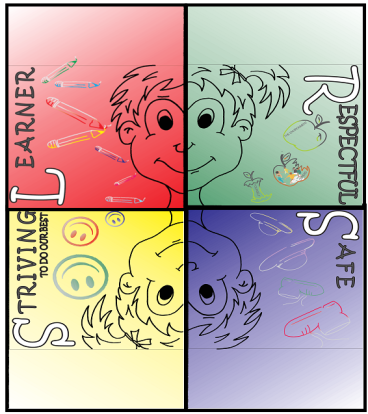Positive Behaviour for Learning
Logan Reserve State School is committed to providing a
positive learning environment for all students. Logan Reserve State School
became a Positive Behaviour for Learning school in 2009. It has assisted our
school to create positive learning environments by developing proactive
whole-school systems to define, teach and support appropriate student
behaviour. Our data has shown the effectiveness of PBL in the significant
decrease in inappropriate behaviour in our school.
School is committed to providing a
positive learning environment for all students. Logan Reserve State School
became a Positive Behaviour for Learning school in 2009. It has assisted our
school to create positive learning environments by developing proactive
whole-school systems to define, teach and support appropriate student
behaviour. Our data has shown the effectiveness of PBL in the significant
decrease in inappropriate behaviour in our school.
PBL is not a specific model or program but a compilation
of research-based interventions, effective teaching practices and change
strategies that have been demonstrated to be effective and efficient. Schools
that implement school-wide systems of positive behaviour support focus on
teaching appropriate behaviour to all students in the school.
Implementing PBL
PBL was developed by leading behaviour experts to reduce problem behaviour and
increase academic achievement. At Logan Reserve State School we take an
evidence-based approach to managing student behaviour and providing behavioural
interventions. Our PBL team routinely use data to make decisions about the
specific interventions that may work for our students. The PBL team regularly
review whole-school practices to make sure our program remains effective,
engaging, and relevant.
PBL is
implemented at Logan Reserve State School through:
· Enthusiastic
& committed Principal leadership
· A committed
school leadership team
· A trained
PBL coach to assist the school in implementation
· Accurate &
consistent implementation of PBL by all staff members
· Regular
reviews of school data to guide direction
· Highly
specialized, expert STRIVE team that focuses on providing more focused support
for students experiencing difficulty
What makes us a PBL school?
·
4 Positively Stated Rules:
o I am a Learner
o I am Respectful
o I am Safe
o I Strive to do my best
·
Defined behaviour expectations
for all students
·
Teaching of expected school
behaviour to all students
·
Having clear and consistent
consequences for inappropriate behaviour
·
Consistently reinforcing
appropriate school behaviour
·
Implementing effective behaviour
support
·
Using data to make meaningful
decisions
Can PBL
work at home?
The link
between families and PBL is an important one. Family involvement helps to
provide consistency between home and school.
Positive
behaviour support (PBS) includes strategies for preventing problem behaviour by
changing routines and by teaching new social and communication skills.
Traditional ways of dealing with problem behaviour through punishment are not
effective in changing behaviour. PBS can help parents guide their children to
develop the positive behaviour skills that are the foundation for a successful
future.
Although PBS
is commonly implemented in school settings, the approach can be used at home
with families. PBS at home looks similar to implementation at school but on a
smaller scale.
Steps for PBS at home
1. Select 3-5 behaviour
expectations e.g. Be Safe, Be Respectful, Be Responsible, Strive to do your
Best. State the expectations positively.
2. Define
expectations across family routines. E.g. What does ‘Be Safe’ look like in the
house, in the car, in the yard or at the shops. What does ‘Be Respectful’ look
like at dinner time, in the morning or after school.
3. Teach the
expected behaviours during routines (e.g. adults should model and have the
children practice)
4. Create a
system to reward respectful, responsible, safe behaviour in the home.
5. Create a
correction system that emphasizes consistency, re-teaching and consideration of
why the behaviour occurred (e.g. reprimanding a child at length may not be an
effective consequence following a problem behaviour if the child is seeking an
adult reaction or response).
6. Create a
simple way to track daily/weekly progress towards building and sustaining a
safe & caring family environment.
7. Celebrate
success!
Top Ten Positive Behaviour Tips
·
Aim for 4
positive comments to every 1 negative comment
·
Set the stage
for success & reward effort
·
Give clear,
specific directions
·
Stay calm,
use a calm voice – Nagging gets you nowhere!
·
Set
reasonable limits
·
Be
consistent
·
Set the
example – actions speak louder than words
·
Proactively
anticipate situations
·
Have patience
– a little goes a long way
·
Have fun
& enjoy your kids.